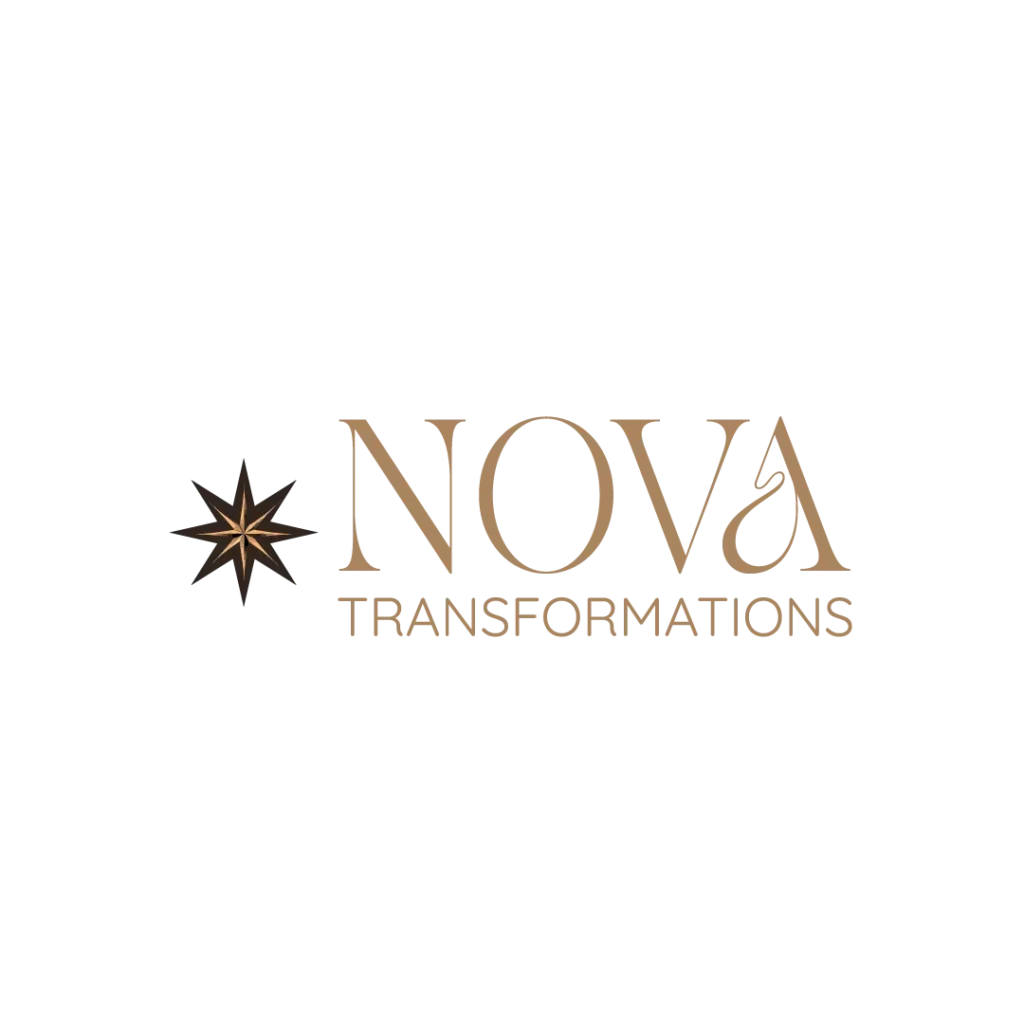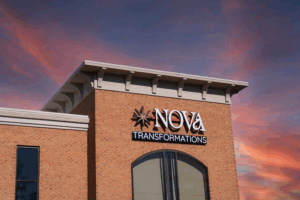Understanding Addiction Treatment
Gender Disparities in Addiction Treatment
Understanding the nuances of addiction treatment is crucial, especially when considering the distinct experiences of women. Research indicates significant gender differences in the course and patterns of substance use disorders, which often necessitate tailored approaches to care and recovery. Women struggling with addiction frequently face harsher societal judgment compared to men. Substance use, particularly among mothers, is often viewed as a personal failing rather than a medical issue requiring intervention. This stigma can lead to feelings of shame and fear, further complicating the path to recovery.
Women also experience a “double stigma” due to intersecting identities and societal expectations, which contributes to their unique challenges in seeking and receiving help (NIH). This layer of stigma highlights the necessity of gender-sensitive treatment programs, such as those offered by Nova Transformations, that recognize and address these disparities.
Societal Impact on Addiction Treatment
The societal impact on addiction treatment cannot be understated. Women are often burdened with guilt and anxiety regarding their substance use, manifesting in feelings of being inadequate for leaving their families to seek help. Family support can be a vital component in easing this emotional burden and boosting encouragement during recovery (Pyramid Healthcare).
In addition to societal pressures, treatment models for addiction vary significantly in their effectiveness. Although traditional inpatient and outpatient settings are common, outcomes may not strongly correlate with the treatment model but can depend on specific individual needs (NCBI Bookshelf). Understanding these societal dynamics is critical for individuals seeking the best path forward, making effective programs like women’s addiction rehab especially important.
Choosing a facility that offers comprehensive, gender-specific programs can lead to improved recovery outcomes. Nova Transformations provides tailored options that address the distinct challenges faced by women, ensuring that clients receive the nuanced care necessary for successful long-term recovery.
Specialized Care for Women
In the realm of addiction treatment, it is essential to recognize the unique needs of women. Women’s addiction rehab programs are designed specifically to address these needs, ensuring that women receive the most effective care possible.
Tailored Programs for Women
Tailored programs for women focus on the specific societal pressures and emotional stressors they face. Research indicates that women often encounter caregiving responsibilities and gender-based violence, which can greatly influence their substance use patterns. These tailored programs incorporate therapeutic approaches that reflect the unique challenges women experience, such as anxiety or depression along with their addiction.
| Female-Specific Factors | Program Focus |
|---|---|
| Caregiving Responsibilities | Parenting Skills Training |
| Trauma from Gender-Based Violence | Trauma-Informed Care |
| Mental Health Co-Occurring Disorders | Dual Diagnosis Treatment |
| Child Development Knowledge | Prenatal and Postpartum Care |
Women in addiction treatment may also require assistance with economic security and safe housing, ensuring they have the stability needed to focus on their recovery. By considering these factors, tailored programs help facilitate a more supportive and effective healing environment.
Women-Specific Support Needs
In addition to tailored programs, women-specific support needs are crucial for successful rehabilitation. Pregnant and postpartum women, for instance, have distinct healthcare needs that should be met in any addiction treatment setting. This may include prenatal care, parenting skills education, and knowledge surrounding child development.
Furthermore, research shows that while women are less likely to consume alcohol or drugs than men, they tend to engage in problematic use and dependency more quickly. This can be attributed to pre-existing mental health challenges, which necessitate integrated care approaches that address both addiction and underlying mental health conditions (Dianova).
Effective treatment programs for women acknowledge these specific needs and create an environment where women can thrive. Support groups, such as peer support rehab, are vital in helping women connect and share experiences, reducing feelings of isolation during their recovery journey.
Incorporating family support and therapy is another essential component in addressing women-specific support needs. Engaging family members can help build a network of encouragement and accountability, which is instrumental in the recovery process. Family support therapy is key to fostering a supportive backdrop for recovery, particularly for those balancing familial and personal responsibilities.
In summary, women’s addiction rehab programs focus on creating tailored solutions designed to meet the unique needs of women. Nova Transformations emphasizes the importance of specialized programs that address women’s specific experiences, making them a leading choice for those seeking comprehensive care.
Challenges Faced by Women
Women experiencing addiction often encounter unique hurdles that complicate their journey toward recovery. These challenges can stem from societal stigma and the pressures of balancing various responsibilities during the healing process.
Unique Stigma Faced by Women
Women struggling with addiction frequently face harsher societal judgment compared to men. Substance use is often viewed as a personal failing rather than a medical issue that requires treatment. This stigma is particularly intense for mothers, who are expected to prioritize their children’s well-being, leading to feelings of shame and fear of judgment.
Gender representations exacerbate the situation, as societal stereotypes portray women who use substances as irresponsible or threatening, especially when viewed through the lens of pregnancy or motherhood. This perspective further contributes to the stigmatization of women battling addiction, making it challenging for them to seek help or support (Dianova).
| Type of Stigma | Impact |
|---|---|
| Personal failing | Prevents women from seeking help due to shame |
| Maternal judgment | Increases fear of losing custody or alienation from children |
| Societal stereotypes | Reinforces belief that addiction is an inherent flaw |
Balancing Responsibilities and Recovery
Recovering from addiction is a highly demanding process that requires significant commitment. However, many women face the additional challenge of balancing various responsibilities such as work, parenting, and household duties. This juggling act can complicate their recovery, often leading to heightened stress and discouragement.
Women in high school and college are particularly vulnerable to peer pressure, which can further complicate their recovery efforts. In many cases, they may engage in alcohol and drug use to fit in with peers who participate in substance abuse activities (The Willows at Red Oak Recovery). This early exposure can set the stage for ongoing challenges, making it essential for treatment programs to address these unique circumstances.
Programs that understand these challenges are critical in supporting women on their path to recovery. Nova Transformations recognizes these factors in their approach to womens addiction rehab.
By creating tailored programs that address both the stigma faced by women and their multifaceted responsibilities, Nova Transformations provides an environment where women can focus on healing without additional societal pressures.
Gender-Specific Treatment Approaches
Impact of Family Support
Family support plays a crucial role in the success of women’s addiction recovery efforts. It provides motivation and helps reduce feelings of shame, isolation, and guilt often associated with addiction. According to Pyramid Healthcare, women who receive emotional, practical, and financial support from family members are more likely to stick with treatment and achieve long-term recovery.
Practical support from family members can significantly enhance the recovery process. This assistance may include:
| Type of Support | Examples |
|---|---|
| Childcare | Providing care for children so the woman can attend therapy sessions |
| Household Management | Assisting with chores such as cleaning or cooking |
| Financial Assistance | Helping cover treatment costs or daily expenses during recovery |
By relieving these stressors, family support allows women to focus solely on their healing journey. Continuous encouragement from family throughout recovery is essential for sustaining long-term success.
Role of Family Therapy
Family therapy is another critical component of women’s addiction treatment. This therapeutic approach enables open communication and helps to heal fractured relationships caused by substance use. It creates a safe space where family members can express their feelings and understand how the woman’s addiction has impacted them, fostering an environment of support and empathy necessary for long-term recovery (Pyramid Healthcare).
Family therapy addresses various challenges women face in recovery, including:
- Triggers from trauma: Recognizing specific stressors that can lead to a relapse.
- Relationship stress: Improving dynamics within the family that may have contributed to substance use.
- Caregiving pressures: Offering strategies for managing responsibilities while prioritizing recovery.
Implementing family therapy can be instrumental in building a supportive network and facilitating a successful rehabilitation process. Programs like those provided by Nova Transformations ensure that you or your loved one has access to this essential support system, which can greatly enhance the overall treatment experience. For more information about specific treatment options, explore our pages on alcohol addiction treatment and dual diagnosis mental health and addiction.
Choosing Nova Transformations
Overview of Nova Transformations
Nova Transformations is a leading facility dedicated to providing effective drug and alcohol treatment through comprehensive and gender-sensitive programs. Understanding the unique challenges women face in addiction recovery, Nova Transformations has tailored its services to foster a supportive environment that promotes healing and growth.
Their commitment to women’s addiction rehab ensures that you or a loved one can access specialized care that addresses gender-specific needs. The programs focus on facilitating recovery by offering various therapeutic modalities and maintaining a high ratio of female staff to enhance comfort and understanding.
Unique Features of Their Programs
Nova Transformations offers several features that set its programs apart in the realm of addiction treatment for women. Key components include:
| Feature | Description |
|---|---|
| Tailored Treatment Plans | Programs are customized based on individual assessments to meet specific needs. This includes addressing issues related to child care, health, and self-esteem enhancement. |
| Family Support Therapy | Family therapy plays a significant role in treatment, allowing for open communication and healing of relationships impacted by substance use. This creates an empathetic environment essential for long-term recovery (Pyramid Healthcare). |
| Qualified Staff | The presence of a high ratio of female staff fosters a supportive atmosphere that improves treatment retention (NCBI Bookshelf). |
| Holistic Approaches | Programs incorporate holistic methods such as yoga detox support, nutritional counseling, and mindfulness practices, enhancing overall well-being. |
| Comprehensive Care | Specialized care is available for pregnant and postpartum women, addressing their unique needs while ensuring safe and effective treatment during this sensitive period. |
With a focus on addressing the unique challenges women face in addiction recovery, Nova Transformations offers a supportive environment aimed at empowering you or your loved one on the path to healing. Whether you are facing challenges with substances such as alcohol, opioids, or meth, their dedicated programs aim to facilitate lasting recovery. For more information on various treatment options, explore our articles on alcohol addiction treatment and opioid addiction programs.
Success Factors in Recovery
Recovery from addiction can be a challenging journey, especially for women. However, certain factors can significantly enhance the chances of a successful outcome. Two critical elements are practical support from family and addressing internalized stigma.
Practical Support from Family
Family support plays a vital role in the recovery process. It provides essential encouragement and motivation to individuals struggling with addiction. Statistics show that family involvement not only reduces feelings of shame, isolation, and guilt but also reinforces positive behaviors (Pyramid Healthcare).
Practical assistance can make a significant difference. This includes:
- Childcare: Assisting with children allows women to focus on their recovery without the added stress of parenting duties.
- Household Management: Helping with daily responsibilities enables women to concentrate on therapy and healing.
- Financial Support: Providing financial help can alleviate pressure during treatment, making it easier to access necessary resources.
When family members actively participate in the recovery process, it can foster a nurturing environment that enhances the effectiveness of programs like women’s addiction rehab.
Addressing Internalized Stigma
Internalized stigma can hinder recovery efforts for women. Society often places judgment on individuals seeking help for substance abuse, particularly women. This can exacerbate feelings of shame and self-blame, deterring them from pursuing treatment.
To combat this, it is essential to create a supportive atmosphere where women feel valued and understood. Education and awareness can assist individuals in recognizing that seeking help is a strength, not a weakness. Programs can implement strategies such as:
- Support Groups: Sharing experiences in a safe environment can alleviate feelings of isolation and reinforce a sense of community.
- Therapeutic Modalities: Engaging in therapies like cognitive behavioral therapy addiction can help individuals reframe negative thoughts and promote healthier coping mechanisms.
- Counseling Services: Accessing professional support can address underlying mental health issues and work through feelings related to stigma.
Taking steps to address internalized stigma is crucial for achieving long-term recovery. By focusing on both family support and mental wellness, individuals can navigate their path to recovery more effectively. This holistic approach is integral to the success of any addiction treatment, especially in facilities like Nova Transformations, where support structures are in place to foster healing.








